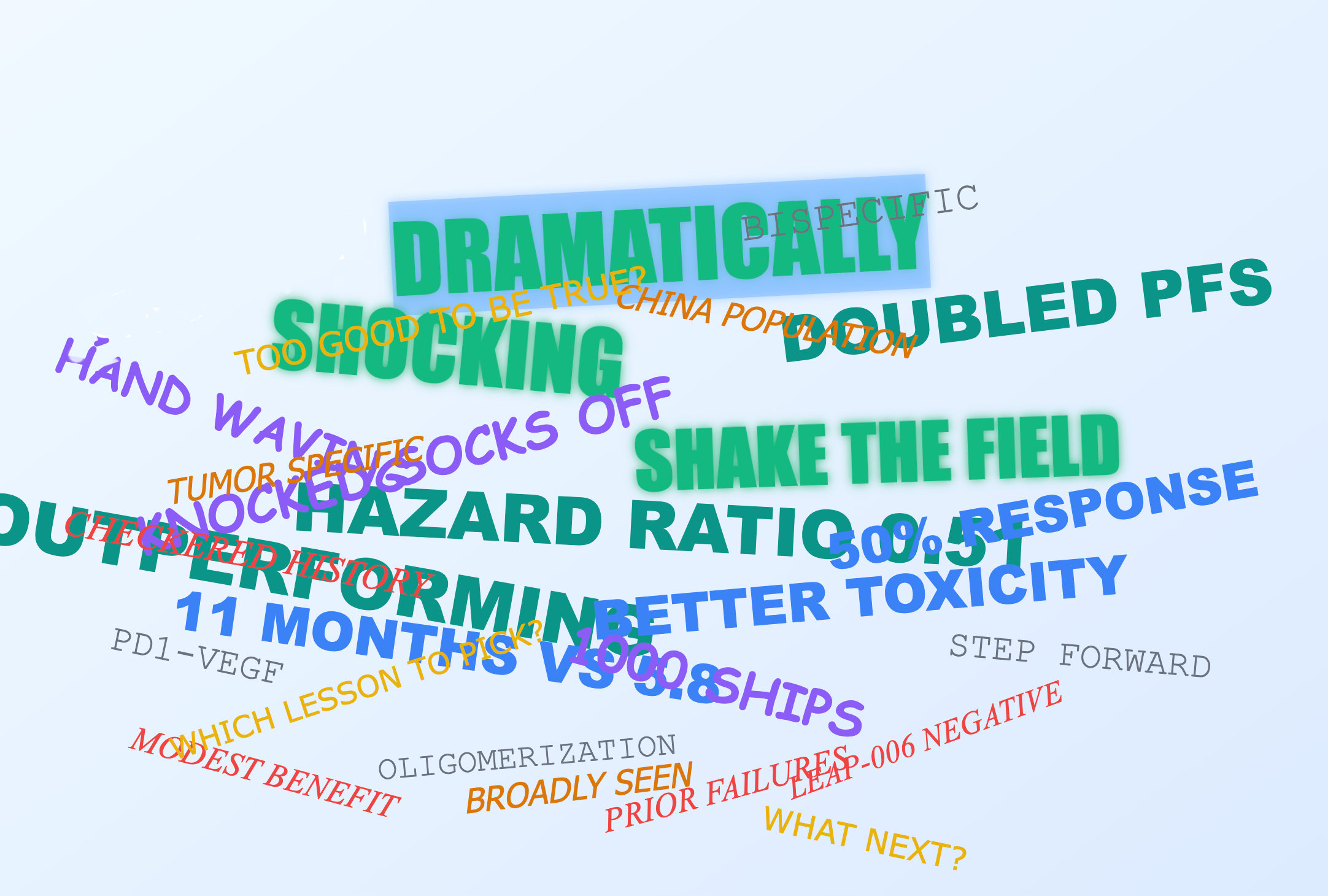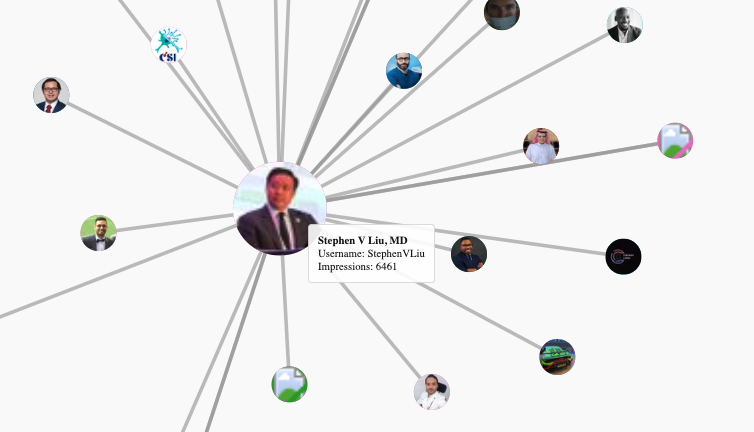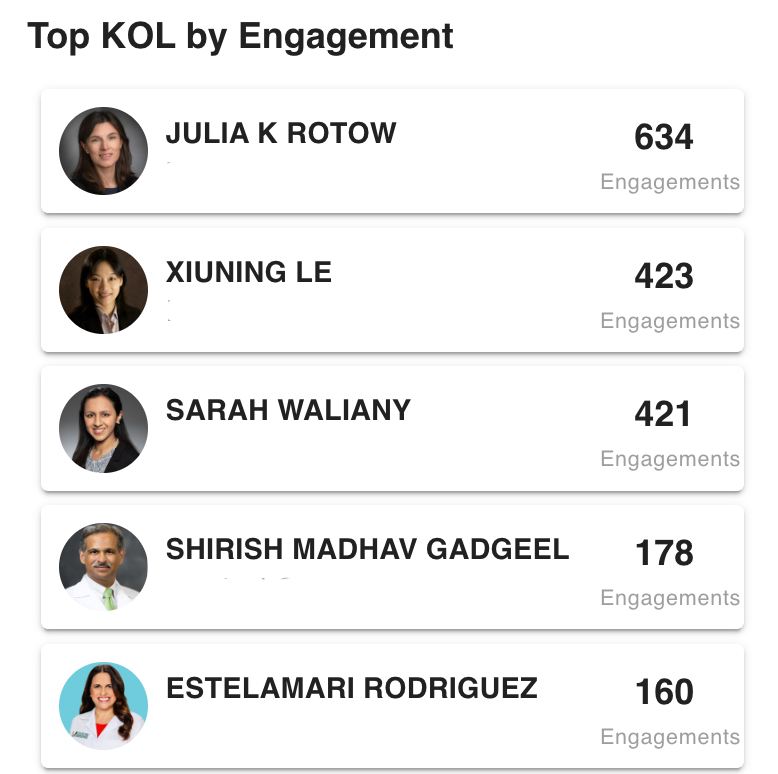3 min read
Is Ivonescimab Too Good To Be True? Highlights of Dr. John Heymach's Uromigos Podcast
Brian Shields
:
Mar 26, 2025 5:34:39 PM

Ivonescimab Results: The Study That Launched a Thousand Ships
Dr. John Heymach from MD Anderson Cancer Center discussed the ivonescimab data from HARMONi-2 at the World Congress of Lung Cancer Meeting in 2024.
#WCLC24 Dr John Heymach @MDAndersonNews asks if we are ready to disrupt the harmony in 1L chemoIO options? Providing a well balanced critique of the #HARMONi2
— OncLive.com (@OncLive) September 8, 2024
➡️ Why did the pembro control arm underperform?
➡️ Would this PFS benefit extend to OS? @OncLive takeover @Latinamd pic.twitter.com/mcrlipdiqL
He recently joined the Uromigos podcast to provide more color commentary on the results of the trial and the impact on the Lung Cancer research community. He also discussed the potential to see similar efficacy benefits in Kidney Cancer with Dr. Brian Rini and Dr. Tom Powles.
In our latest podcast, John Heymach from @MDAndersonNews reviews exciting PD1/VEGF bispecific data from the lung cancer. We review the data and discuss applications to GU malignancies.https://t.co/c0w1Svk3Ja pic.twitter.com/Rc8IsZjkDx
— Uromigos (@Uromigos) March 24, 2025
"This has shaken the field..."
"I would say this has shaken the field and up more so than any study presented in the last several years maybe in memory in terms of outperforming expectations."
The HARMONi-2 trial comparing ivonescimab (PD1-VEGF bispecific) to pembrolizumab in lung cancer certainly made waves. While the hazard ratio of 0.51 is impressive, skeptics note this China-only trial hasn't yet shown overall survival benefits - the true gold standard in NSCLC.
Doing x-trial comparisons in diff pat pop is always tricky. I'll hold my hat until we see what happens in US pats
— Sally Church (@MaverickNY) September 8, 2024
"Absolutely shocking"
"Really what was absolutely shocking to us was the magnitude of benefit for ivonescimab versus pembrolizumab PFS hazard ratio 0.51."
Dr. Heymach didn't hide his surprise at seeing PFS double from 5.8 to 11 months. The dramatic improvement stands in stark contrast to previous VEGF-targeted approaches in combination with immunotherapies.
#TTLC25 Leave it to @BalazsHalmosMD (King of Memes) to present data for next IO/VEGF inhibitors (I.e ivonescimab) to compete for the Crown of 1L NSCLC therapy in the most memorable way. #lcsm pic.twitter.com/55PdyY8TpG
— Dr. Estela Rodriguez (@Latinamd) February 20, 2025
"Doubled PFS"
"I would have expected maybe a month or two improvement in PFS, but it basically doubled the PFS from 5.8 months to 11 months."
Doubling progression-free survival is undeniably noteworthy. However, the comparison against pembrolizumab monotherapy (rather than chemo+PD1) in a PDL1<50% population differs from typical US/European practice, potentially limiting real-world applicability.
HARMONi-2: striking PFS results. Ivonescimab appears efficacious..but...
— Dr Deme Karikios (@DKarikios) September 8, 2024
Patients with PD-L1 1-49% were subject to an inferior control arm. SOC is pembro AND chemo.
And I know it's hard but wouldn't it be wonderful if OS was the primary endpoint#WCLC24 @csoncol
"Hand waving"
"I don't know, I'd be, I'd be hand waving here. I mean, what I can say in terms of the phenomena here is they do appear to have a better than expected toxicity profile and dramatically greater activity than we'd seen for any combination of PD1 and VEGF or VEGFR 2 inhibition.
Dr. Heymach candidly acknowledged the speculative nature of explaining why this VEGF-targeting approach succeeded where others failed. The proposed "oligomerization" mechanism offers a plausible theory but remains unproven - refreshing scientific humility amid the excitement.
1/🇨🇳 #Akeso Biopharma has published a preprint study on MoA of #ivonescimab (#AK112) in iScience. https://t.co/ukHzuz7EDW
— Minhua Chu (@chuminhua432) February 10, 2025
"1100..1200 hundred ships"
"Based on the number of different drugs we've heard about in the past couple of months that are coming along, I think it's probably about 1100...1200 ships, not just 1000 ships."
This colorful exaggeration captures the industry buzz, with competitors already developing similar bispecifics. The enthusiasm has sparked considerable investment despite lingering questions about generalizability beyond Chinese patients and the conspicuous absence of survival data.
Will ivonescimab (bispecific antibody to PD1 and VEGF) replace PD(L)1 inhibitors in lung cancer? Phase III HARMONi-2 @TheLancet compared first line ivonescimab to pembrolizumab in PD-L1+ NSCLC with significant PFS benefit (11.1 vs 5.8m, HR 0.51).https://t.co/iCBlfJVoHs
— Stephen V Liu, MD (@StephenVLiu) March 8, 2025
"Too good to be true?"
"You know, I think this is everybody's first thought that this may be just Pembro had a bad day or Ivo had a good day."
The hosts' direct question received an interesting response - Heymach acknowledged initial skepticism but suggested accumulating evidence across multiple trials supports ivonescimab's efficacy.
The field eagerly awaits phase 3 results in Western populations that could confirm these promising findings.
John Heymach's conclusions on discussing HARMONi-2. V nice overview and balanced discussion #WCLC24 @IASLC pic.twitter.com/LT2frWJlbo
— Sanjay Popat (@DrSanjayPopat) September 8, 2024

The Wild West of World Lung Cancer #WCLC24
This Sunday, September 8, the HARMONI-2 Trial data will be presented at World Lung by Akeso, a China based pharmaceutical company. This will be the...


